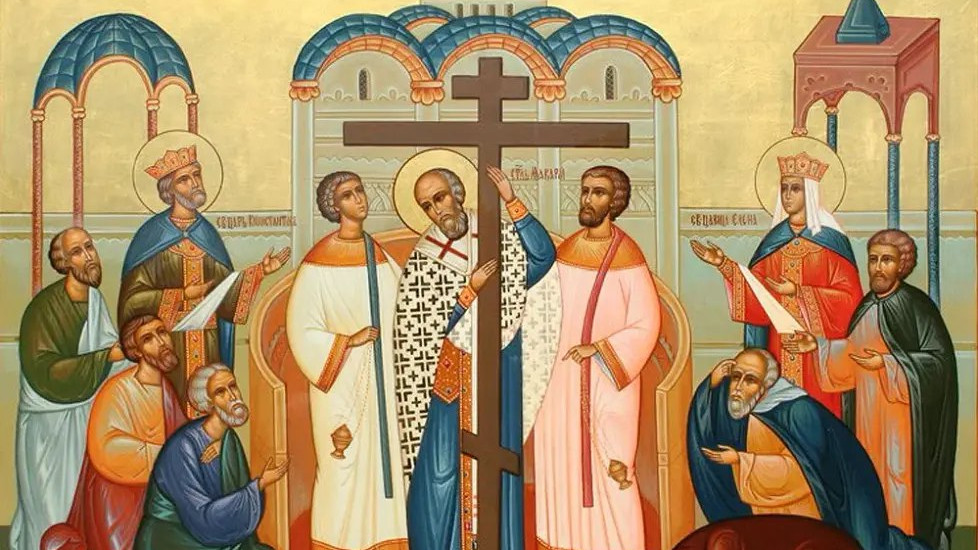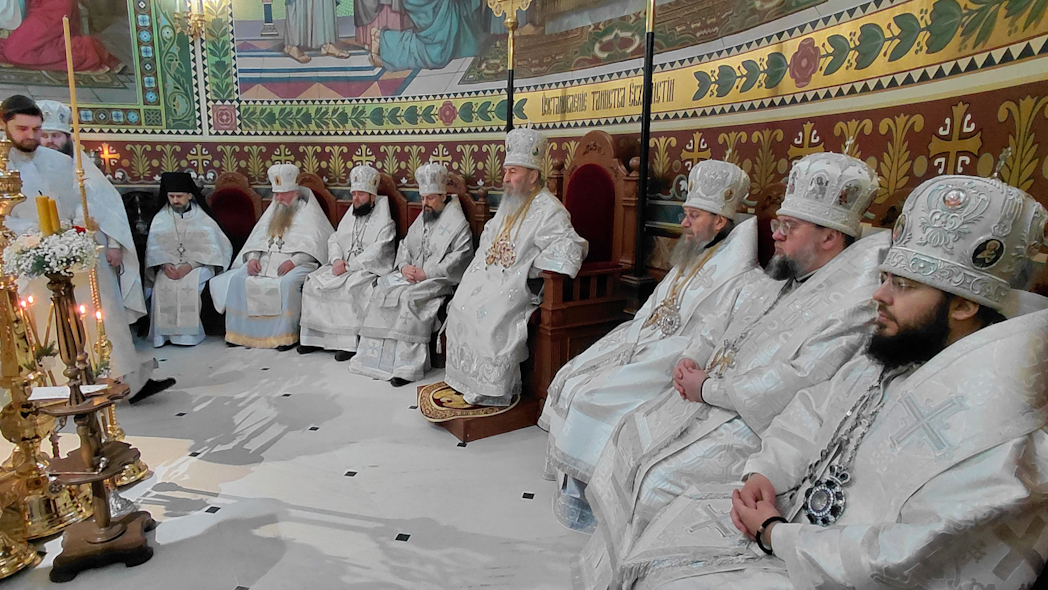Онлайн трансляция | 12 сентября
Название трансляции
- 12 сентября 2015 Название трансляции
- 12 сентября 2015 Название трансляции
- 12 сентября 2015 Название трансляции
- 12 сентября 2015 Название трансляции
- 12 сентября 2015 Название трансляции
- 12 сентября 2015 Название трансляции
- 12 сентября 2015 Название трансляции
- 12 сентября 2015 Название трансляции
articles

The Universal Exaltation of the Precious and Life-Giving Cross
On the Feast of the Exaltation, when we behold the Cross of Christ, let us remember, brothers and sisters, that we too, as followers of our Savior, must carry our own cross. He Himself gave us this command: “If anyone would come after Me, let him deny himself and take up his cross daily and follow Me. For whoever would save his life will lose it, but whoever loses his life for My sake will save it. For what does it profit a man to gain the whole world and yet lose or forfeit himself?” (Luke 9:23–25).
What does it mean to take up the cross? St. Ignatius (Brianchaninov) says that it means to bear with patience and thanksgiving to God all the sorrows, illnesses, labors, temptations, and trials that we meet on our path through life. We often think that sorrows come to us by chance, yet this is not so. Nothing happens to Christians by accident. If the Lord says that even the hairs of our head are all numbered, how then could sorrows befall us by chance? No—the cross is given to us by God, and it is given for our benefit and salvation. Let us recall Christ’s words to the Apostle Peter on the eve of the Crucifixion: “Shall I not drink the cup that the Father has given Me?” (John 18:10). From these words it is clear that the death on the Cross was sent to Christ by God the Father Himself.
Likewise, our life-cross is sent to us by the Lord God Himself. And this cross, as Elder Paisios the Athonite said, is sent not that we might suffer, but that by it—as by a ladder—we might ascend to Heaven. The Lord would prefer not to send us a cross, but man is so constituted that without the cross he does not know how to be saved. The cross is necessary for us like a bitter medicine for the healing of our fallen nature inherited from our forefather Adam.
We must say that the cross—that is, deprivations, sorrows, illnesses, and the like—is inevitable in this world for all people; yet for some it can serve unto salvation, while for others—unto condemnation and ruin. Unto salvation if we relate to it rightly, bearing it with patience and trust in God. Unto condemnation if we relate to it wrongly, bearing it with murmuring, resentment, and bitterness. In that case the cross becomes destructive for a person. “The cross is deadly for those,” says St. Ignatius, “who have not transformed their own cross into the Cross of Christ—who, from their cross, complain against Divine Providence, revile it, and give themselves over to hopelessness and despair. Unaware and unrepentant sinners die on their cross an eternal death, and by their impatience are deprived of true life—life in God. They are taken down from their cross only to descend in their souls to the eternal grave—to the prisons of hell.” But for those who bear the cross with patience and thanksgiving to God, it becomes not only salvific but light. Hear again the Saint: “The cross is burdensome only so long as it remains one’s own cross. But when it is transformed into the Cross of Christ, it acquires extraordinary lightness: ‘My yoke is easy, and My burden is light,’ says the Lord.”
How then do we transform our cross into the Cross of Christ? St. Ignatius answers: “Your cross is changed into the Cross of Christ when Christ’s disciple bears it with an active awareness of his own sinfulness, deserving of punishment; when he bears it with thanksgiving to Christ and with the glorifying of Christ. From thanksgiving and doxology there arises in the sufferer spiritual consolation; thanksgiving and praise become a most abundant fountain of ineffable, incorruptible joy, which by grace seethes in the heart, pours forth upon the soul, and even upon the very body.” Thus we see that the inevitable life-cross can be either salvific or ruinous; and this depends on how we relate to it. A vivid example of both attitudes is given by the two thieves crucified with Christ: one, acknowledging himself a criminal deserving of death, was saved and entered Paradise; the other, by murmuring and blasphemy, thrust away his salvation and perished.
All of us, brothers and sisters, are, in one measure or another, sinners and robbers before God. And for this very reason a cross is sent to us by God, just as it was to those two. Let us therefore, like the good thief, bear this cross with patience and thanksgiving to God. With him let us confess ourselves sinners, worthy even of the heaviest cross. When sorrows and illnesses come upon us, let us pray in the words of that thief: I receive what is due for my sins; remember me, O Lord, in Your Kingdom! So ought we to act in every affliction. If, for example, our wallet with wages or pension is stolen—let us not murmur, but thank God for the sorrow sent. If disaster befalls us and the house burns—let us endure it with thanksgiving, counting ourselves sinners worthy of every punishment. If sickness visits us—an ulcer of the stomach, or diabetes, or even cancer—let us then also pray the thief’s prayer, acknowledging ourselves worthy of any chastisement. If Christ, our King and Lord, bore sorrows in this world, shall we, His unworthy servants, murmur at sorrows? If He, sinless, endured derision and the Cross, shall we, sinners, flee from the cross? Let us learn to endure earthly sorrows with good courage and with thanksgiving to God. For by doing so we shall truly be faithful followers of our Savior, conquering the world with all its calamities and sorrows.
Thus the holy Apostles of Christ overcame the world: the more troubles and sorrows fell upon them, the more they burned with love for God—so that no one and nothing could separate them from Christ. “Who shall separate us from the love of Christ? Shall trouble, or distress, or persecution, or famine, or nakedness, or danger, or sword? … For Your sake we face death all day long; we are considered as sheep to be slaughtered. No, in all these things we are more than conquerors through Him who loved us. For I am convinced that neither death nor life, neither angels nor rulers, neither things present nor things to come, nor powers, neither height nor depth, nor anything else in all creation, will be able to separate us from the love of God that is in Christ Jesus our Lord.” (Romans 8:35–39).
Therefore, brothers and sisters, let us imitate the saints in bearing our cross. Let us carry all sorrows that befall us with faith and thanksgiving to God. Let us confess ourselves sinners, worthy of every cross and every chastisement. For if we do so, then at the end of our earthly road we too, like the saints, shall ascend from our cross to Heaven.
Редакция сайта www.lavra.ua
To signed up and receive Lavra’s emails and important news once a week.
You will be able to unsubscribe from emails at any time.






Spelling error report
The following text will be sent to our editors: